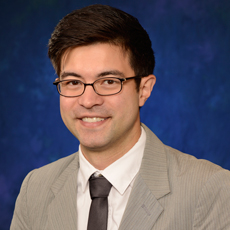
Last week, President Obama dedicated the 9/11 Memorial Museum in New York City. The president and other speakers paid moving tribute to those who lost their lives that day, describing heroic acts that many performed in their last moments. The occasion got me thinking about the heroism and good works not only on display that terrible day but in the thousands of days since — the result of how the searing experience instilled in some survivors a fierce sense of mission. Katy Fike is among those transformed by 9/11, to the benefit of seniors and long-term care providers.
Although she studied engineering at the University of Virginia, Fike went to Wall Street after graduating and began a career in investment banking and corporate strategy. She was at work in the World Financial Center on Sept. 11. Living through the attacks fundamentally shifted her perspective.
“I had been working these long, silly banker hours on stuff that was, quote, so important,” she told me during a phone call last week. After 9/11, she realized, “I wanted the work I do to matter more, not less, when the real world happens.”
That realization led to her enroll, about two years later, in the University of Southern California’s Davis School of Gerontology.
She’s always had an “affinity” for seniors, Fike told me. (She said, “I’m always the one at the party who’s talking to the person’s grandma.”) She also was inspired by the work of Green House founder Bill Thomas, M.D. His writing “kind of changed my life,” she said, explaining that it helped her see “the broader picture.”
Once she shifted her focus to gerontology, she was “hooked” on the topic in way that she never had been with finance, she said. While earning her doctorate at USC, she was a National Institute on Aging fellow. She went on to teach gerontology at the university level, and her research on care transitions was published in peer-reviewed journals and presented at national conferences.
She was passionate about her work but also became aware that she was not utilizing her full complement of skills.
“I felt so far away from the world I’d come from in terms of business and technology, and I thought what we were talking about could benefit from that world, the private sector,” she said.
So Fike began the consulting firm Innovate50, to help spur a more dynamic market for those 50 and older. Then, in 2012 — more than a decade after her life changed on 9/11 — she co-founded Aging 2.0.
If you’re a long-term care provider, chances are good you’ve worked with the organization or heard about it; media attention has not been lacking. It is based at the Institute on Aging, a hub of aging services in the Bay Area, to bring techies, seniors and caregivers together; and it has carried out this mission on a large scale by convening interdisciplinary groups in dozens of events in multiple countries. (For more of Fike’s thoughts on this topic and Aging 2.0’s approach, see the upcoming June print edition of McKnight’s.)
Fike said the organization started as a scrappy “bootstrap effort.” Now, it undeniably has grown to be a significant player in the long-term care tech sector. Last year, it came under the umbrella of Generator Ventures LLC, as Fike and co-founder Stephen Johnston launched the Generator accelerator program to jumpstart chosen startups. And just last week came more exciting news from the Generator Ventures team: an early-stage fund to help support tech innovations, in partnership with Formation Capital, the owner of such giant providers as Genesis HealthCare and TridentUSA Health Services.
The partnership is meant to enable Aging 2.0 to not only invest more in tech innovators but also give them greater access to industry partners. This is a big deal because, while access to capital certainly is a challenge for the tech startups, the “No. 1 challenge” is distribution, Fike told me.
The Formation Capital partnership is only the latest milestone in the long, winding road Fike has traveled since Sept. 11. Given her record of accomplishments, it seems clear that there will be other impressive milestones ahead, which will mean good things for long-term care.
It’s this sense hopefulness that I wanted to share, considering that the opening of the 9/11 memorial begins yet another stage in our national mourning, triggering pain and sadness. But it also offers a chance to assess the full legacy of the attacks. Thankfully and somewhat amazingly, that legacy includes stories like Fike’s, for which we all can be grateful.
Tim Mullaney is McKnight’s Senior Staff Writer. Follow him @TimMullaneyLTC.



